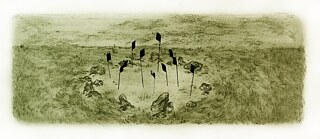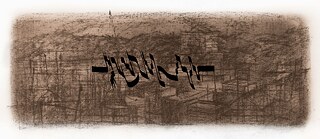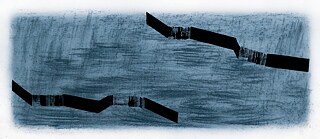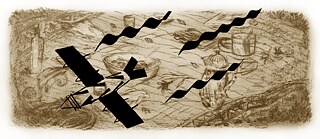Everything will be fine soon
My grandfather had an old radio set in our big joint family home in Kandahar province. He would listen to BBC Pashto or VoA Pashto on shortwave the entire day. I would also sometimes sit and listen to the news packages of the horrifying events of those times in the nineties. But I would enjoy the iconic voice of Nabi Misdaq, the founder of BBC’s Pashto service, saying, "You are listening to the BBC Pashto from London" in a heavy tone. I would try to recite the news in his style to my family members. That was the time my love for journalism started. I would always wonder what a radio studio and the people talking would look like.
Years later, when I was preparing for the university entrance exam, I told my father about the choice of my profession. Although he had supported me in every decision I made in my life, he was not happy with my chosen profession. I don't blame him either because I have witnessed many young journalists being targeted and killed in Kandahar. Somehow, I managed to convince my family and started my Bachelors degree. After completing it, I came to India to pursue my Masters degree on a scholarship in a prestigious university in its capital and that’s where I am now, watching Afghanistan in the news headlines.
Growing up, I also lived in a capital city- but not Kabul as you may be imagining. I was born around the time the Taliban regime came to power in Afghanistan in 1996, and Kandahar, the city of my birth was their capital. My first school was a madrasa. We had little. Our greatest enjoyment was playing games with rocks and stones in circles on the ground. The first time I saw a Television set was at a relative's home when I was eight years old. My mom still jokes about that day. I was so shocked that I screamed, "Mom, what is that?"
I thought of that exchange today when I woke up to prepare for my class which was about to start in an hour in my university in Delhi. As usual, even before I got out of bed, the first thing I did was check my social media. Social media is the essential source in Afghanistan for first-hand information as the media cannot reach most conflict zones. So Afghans mostly rely on the information that the citizens upload.
The first news that I saw on Facebook was the news and photos of my house and neighbourhoods under fire. The next few posts were the images of injured people and destroyed buildings near my home. After seeing the news, I tried to call my mom with shaky hands while feeling my fast heartbeats. But no one answered.
It was nine in the morning. After trying multiple times, helplessly and hopelessly, I started scrolling through the news and thinking of my dark past and uncertain future.
My memory of the Taliban regime collapsing in 2001 is vivid. When the first U.S. missile hit Kandahar city, our house had shaken violently and some windows broke. I still remember the blinding white flash in the night sky.
When the new government was established, my grandfather admitted me to a public school near our house. The new building, oversized classes and new books were wonderful for us. Later, I joined a high school run with Turkish assistance, located in the city centre of Kandahar, near several high-profile government buildings. The violence still continued. Suicide attacks and bomb blasts were in the daily news and we talked about them every day. I remember one day during the afternoon break, some gunmen climbed to the top of a five-storey building opposite our school and started firing blindly. While the bullets were falling like rain, our Turkish teachers immediately gathered all the students on the school's ground floor. During the fight, hundreds of shots hit the school windows and walls. But we were cracking jokes with our classmates and laughing at our frightened foreign teachers. Our angry and scared teachers shouted at us to shut up. In hindsight, laughing and cracking jokes at a time like that seems strange, but at the time, it seemed normal to us. Perhaps it was a way for us to cope – to laugh at a time when death was that close, and people were dying around us. There was no break because of the gunfight. The very next day we were at school, counting the bullets that had hit the building and searching and collecting the wasted shells from the ground.
Despite everything, I enjoyed my life with my school friends. The only thing that we had to distract ourselves was to hang out with friends. In the city of Kandahar, there were hardly any safe places for that. As a teenager, to go away from the city, I had to first take permission from my father, which was rejected almost every time. So I would usually go without telling the family.
Today, when I was unable to reach them, I remembered one of those days. On a free day, I went to school to meet up with my classmates and from there to a picnic spot far from the city. When I was on the way home, I realized no one had called me for the last few hours. I checked my mobile and realised the battery had drained.
When I was near my home at 8 pm, I saw my entire family standing in front of the house. I got scared and thought something terrible had happened. When I reached, my father angrily asked about where I had been. I was with friends, I responded. I have searched the entire city, hospitals and nearby police stations for you, he said.
They had thought something had happened to me. In Afghanistan, when someone goes somewhere, the family will constantly call until she or he reaches home. If the person doesn't respond, they will start searching in hospitals or ask in police stations. When someone hangs out at night, the mothers will spend the entire night awake until the person reaches home.
I thought of that when I finally reached my family on the phone later today.
Now, whenever I talk to my family, I hear the sounds of firing in the background. Fighting is at its peak, rockets and bullets hit the vicinity every day. The houses around are being abandoned with people fleeing every day. But many, like my family, can neither leave the house - because it would be robbed or demolished - as happens in a war - nor can they stay, for fear of losing their lives. As a journalist, I know that my family's situation is like that faced by many Afghan civilians. As the eldest child of my parents, I sometimes blame myself for not doing anything to protect them. Whenever I speak to them they ask for my suggestion on something that they cannot decide for themselves. Every time I painfully respond that I don't know.
The only thing I do is assure them that everything will be fine soon, and they reply in the same words. But we know that these are the clichéd words that my grandfather would recite to my father, and now we are reciting to each other, and nothing has changed.
— July 2021
Years later, when I was preparing for the university entrance exam, I told my father about the choice of my profession. Although he had supported me in every decision I made in my life, he was not happy with my chosen profession. I don't blame him either because I have witnessed many young journalists being targeted and killed in Kandahar. Somehow, I managed to convince my family and started my Bachelors degree. After completing it, I came to India to pursue my Masters degree on a scholarship in a prestigious university in its capital and that’s where I am now, watching Afghanistan in the news headlines.
Growing up, I also lived in a capital city- but not Kabul as you may be imagining. I was born around the time the Taliban regime came to power in Afghanistan in 1996, and Kandahar, the city of my birth was their capital. My first school was a madrasa. We had little. Our greatest enjoyment was playing games with rocks and stones in circles on the ground. The first time I saw a Television set was at a relative's home when I was eight years old. My mom still jokes about that day. I was so shocked that I screamed, "Mom, what is that?"
Back then, I remember my grandfather telling my father that everything would be all right soon, and my father repeating this back to him.
I thought of that exchange today when I woke up to prepare for my class which was about to start in an hour in my university in Delhi. As usual, even before I got out of bed, the first thing I did was check my social media. Social media is the essential source in Afghanistan for first-hand information as the media cannot reach most conflict zones. So Afghans mostly rely on the information that the citizens upload.
The first news that I saw on Facebook was the news and photos of my house and neighbourhoods under fire. The next few posts were the images of injured people and destroyed buildings near my home. After seeing the news, I tried to call my mom with shaky hands while feeling my fast heartbeats. But no one answered.
It was nine in the morning. After trying multiple times, helplessly and hopelessly, I started scrolling through the news and thinking of my dark past and uncertain future.
My memory of the Taliban regime collapsing in 2001 is vivid. When the first U.S. missile hit Kandahar city, our house had shaken violently and some windows broke. I still remember the blinding white flash in the night sky.
When the new government was established, my grandfather admitted me to a public school near our house. The new building, oversized classes and new books were wonderful for us. Later, I joined a high school run with Turkish assistance, located in the city centre of Kandahar, near several high-profile government buildings. The violence still continued. Suicide attacks and bomb blasts were in the daily news and we talked about them every day. I remember one day during the afternoon break, some gunmen climbed to the top of a five-storey building opposite our school and started firing blindly. While the bullets were falling like rain, our Turkish teachers immediately gathered all the students on the school's ground floor. During the fight, hundreds of shots hit the school windows and walls. But we were cracking jokes with our classmates and laughing at our frightened foreign teachers. Our angry and scared teachers shouted at us to shut up. In hindsight, laughing and cracking jokes at a time like that seems strange, but at the time, it seemed normal to us. Perhaps it was a way for us to cope – to laugh at a time when death was that close, and people were dying around us. There was no break because of the gunfight. The very next day we were at school, counting the bullets that had hit the building and searching and collecting the wasted shells from the ground.
Despite everything, I enjoyed my life with my school friends. The only thing that we had to distract ourselves was to hang out with friends. In the city of Kandahar, there were hardly any safe places for that. As a teenager, to go away from the city, I had to first take permission from my father, which was rejected almost every time. So I would usually go without telling the family.
Today, when I was unable to reach them, I remembered one of those days. On a free day, I went to school to meet up with my classmates and from there to a picnic spot far from the city. When I was on the way home, I realized no one had called me for the last few hours. I checked my mobile and realised the battery had drained.
When I was near my home at 8 pm, I saw my entire family standing in front of the house. I got scared and thought something terrible had happened. When I reached, my father angrily asked about where I had been. I was with friends, I responded. I have searched the entire city, hospitals and nearby police stations for you, he said.
They had thought something had happened to me. In Afghanistan, when someone goes somewhere, the family will constantly call until she or he reaches home. If the person doesn't respond, they will start searching in hospitals or ask in police stations. When someone hangs out at night, the mothers will spend the entire night awake until the person reaches home.
I thought of that when I finally reached my family on the phone later today.
Now, whenever I talk to my family, I hear the sounds of firing in the background. Fighting is at its peak, rockets and bullets hit the vicinity every day. The houses around are being abandoned with people fleeing every day. But many, like my family, can neither leave the house - because it would be robbed or demolished - as happens in a war - nor can they stay, for fear of losing their lives. As a journalist, I know that my family's situation is like that faced by many Afghan civilians. As the eldest child of my parents, I sometimes blame myself for not doing anything to protect them. Whenever I speak to them they ask for my suggestion on something that they cannot decide for themselves. Every time I painfully respond that I don't know.
The only thing I do is assure them that everything will be fine soon, and they reply in the same words. But we know that these are the clichéd words that my grandfather would recite to my father, and now we are reciting to each other, and nothing has changed.
— July 2021






